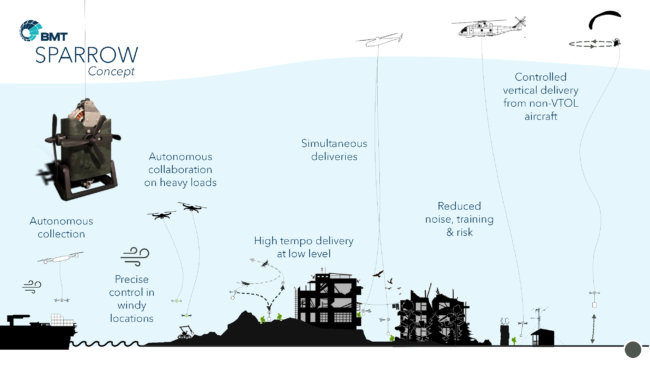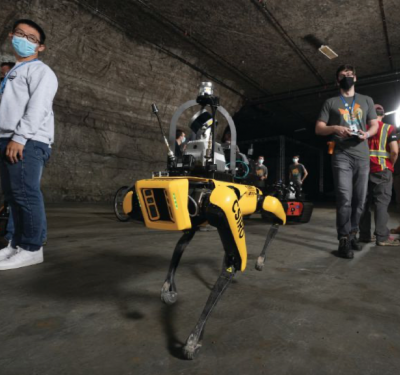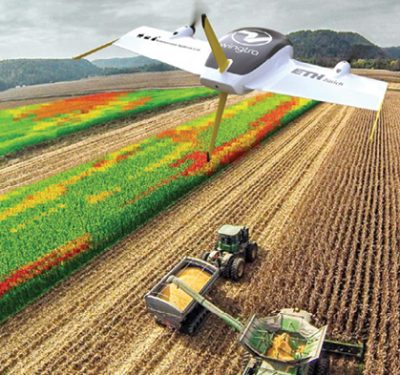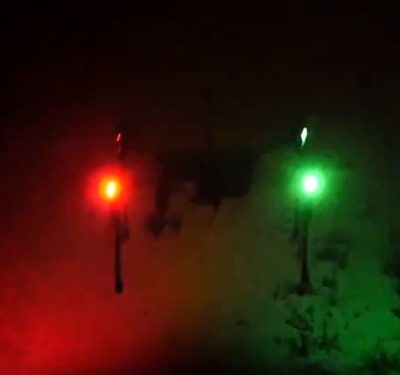
BATH, U.K.—BMT, an international design, engineering, science, and risk management consultancy, announced it has been granted a patent by the United Kingdom Intellectual Property Office for a novel concept called Sparrow, an autonomous air to ground payload transfer device with truly disruptive capabilities for drone delivery applications.
“BMT’s patent signals a new type of suspended robotic device: a device that takes over responsibility for the final moments of payload delivery, and better suited to challenging and sensitive environments,” said Phil Metcalfe, the company’s regional business director for the U.K. and Europe. “This small, highly ruggedized robotic device could even autonomously collect packages as well as deliver them without the need for infrastructure on the ground.”
The company participated in the British Army’s Army Warfighting Experiment late last year and early this year, with an independent product assessment report saying the Sparrow “would enable the use of UAS to deliver payloads in the most challenging terrain, reducing risk to both the airframe, the payload and personnel on the ground.”
The company said Sparrow is fundamentally different to winch systems commonly used in current trials for delivery drones. On a winch, the payload swinging at the bottom end of a line is raised or lowered by the cable drum attached to the underside of the fuselage, and moved horizontally by subtle movements of the drone above. Sparrow is located at the bottom end of the line with the payload with its own power, sensors and actuators. It has autonomous control of its descent using an internal drum, while making precise and immediate horizontal adjustments to counter wind effects using four small, quiet pusher fans.
Sparrow takes over the delivery, allowing the larger delivery drone to remain higher at the destination, relatively unheard and unobtrusive at ground level.
The Sparrow concept was initially developed by a team at BMT for defense applications where drones are being studied to resupply troops and deliver items such as sterilized medical equipment to dispersed, unpredictable and potentially hostile locations.
Alongside applications in defense, the approach may also offer value to manned helicopter operations and across other sectors such as maritime ship to shore deliveries, support to maintenance engineers on tall structures, emergency services, and e-commerce deliveries to domestic addresses. The project is looking to partner for further research and development and to license the technology to a range of leading established operators.
If development of the experimental platform proves successful, BMT says it is offering a glimpse of an alternative future in which the environment is not filled by the incessant noise of drones buzzing around at low level in close proximity to people, but one where drones remain safely at height, out of sight, out of earshot and out of mind.






